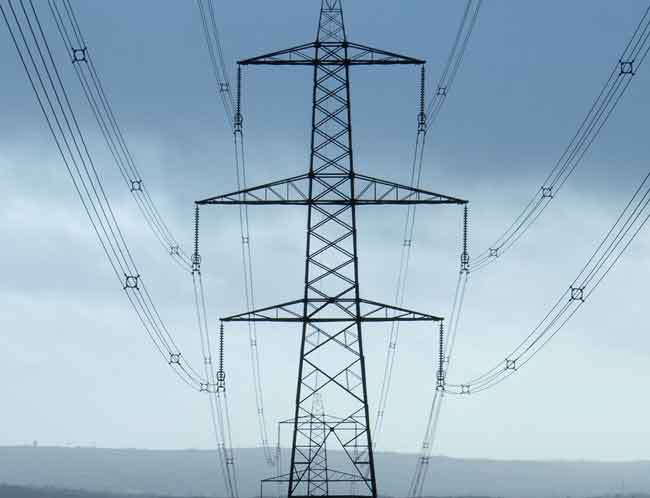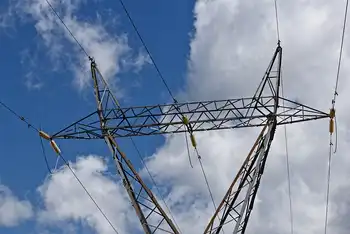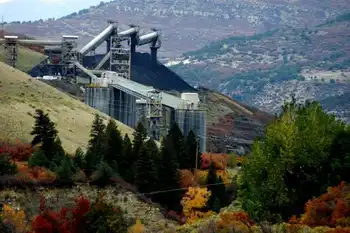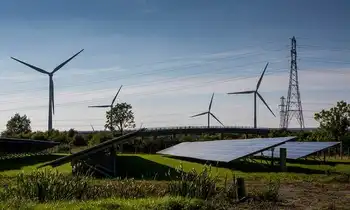Billings looks at power plant idea
Electricity would be produced using steam turbines, which would be cooled using "gray water," the water clean enough to be discharged back into the Yellowstone River. The project is just an idea so far, but city officials think it could help them deal with stricter water quality standards to come in the future from the government.
City officials were recently approached by The Jamison Group, a company headed by Cy Jamison, a Ryegate native and former director of the U.S. Bureau of Land Management. Jamison and the Diamond B Cos., a Billings firm with energy experience, sent the city a proposal offering to do a feasibility study for a generating facility at the wastewater treatment plant near MetraPark. Jamison's company would apply for federal stimulus funds to do the study.
The City Council heard of the proposal at a recent meeting and indicated interest. Jamison's company will now apply for up to $500,000 in stimulus money to fund the study. If the study shows that a power plant at the site is feasible, the city could open up the process to other companies, which would submit proposals on building and running the plant.
But Jamison said his company and Diamond B, owned by businessman Don Bottrell, would like to manage the plant after it's built, so it's unclear if Jamison's company would conduct the study without a promise of a role later in the project. He said the study would be so specific and tailored to this project that another company would have to start over if it were picked.
"I think we have rights to it because it's our idea," Jamison said from his office in Washington, D.C. "We'd be interested in the management. Whoever does the study is probably going to have to be the manager."
Councilman Shoots Veis said at the meeting that he liked the idea of the study but thought the city should solicit proposals from other companies to ensure the best deal. Officials at the meeting said that if the Jamison Group wasn't happy with that process, the city might go ahead and apply for the stimulus funds on its own.
"What the council said the other night is that we'd be happy to joint-venture on the feasibility study, but we'd have to go out and check to see which companies can do something like this," said Public Works Director Dave Mumford.
The plant would mostly burn slash or deadfall or burned trees that are unusable as timber, Jamison said. He said the project wouldn't use freshly cut trees, and none of the wood would come from federal lands.
"I talked to a forester who was interested because they have no way to dispose of their slash from private sales," he said. "We're not out to cut green trees, clear cut or anything else."
Public Works Director Dave Mumford likes the idea because it could help the wastewater plant clean its water to a higher standard before it's discharged into the river. He said the electricity plant would likely need more water than the wastewater plant's daily discharge of 18 million gallons. Gray water would probably be cycled through the boilers several times and cooled in a holding pond. Mumford said using the water in this process results in cleaner water, and burning sludge means not having to find somewhere else to put it.
"I'm kind of excited if we can do something that saves us costs and energy," Mumford said. "We're reaching out into new ground here to see what's available."
A NorthWestern Energy representative said a 10-megawatt power plant could produce enough electricity to power up to 10,000 homes.
Related News

Trump's Canada Tariff May Spike NY Energy Prices
NEW YORK - President Donald Trump announced the imposition of a 25% tariff on all imports from Canada, citing concerns over drug trafficking and illegal immigration. This decision has raised significant concerns among experts and residents in New York, who warn that the tariff could lead to increased electricity and gas prices in the state.
Impact on New York's Energy Sector
New York relies heavily on energy imports from Canada, particularly electricity and natural gas. Canada is a major supplier of hydroelectric power to the northeastern United States, including New York. The imposition of a 25% tariff on Canadian goods…





